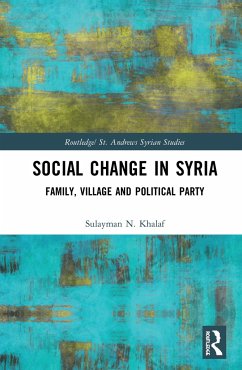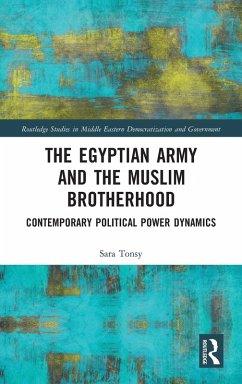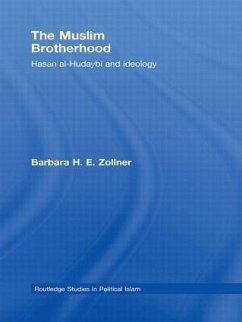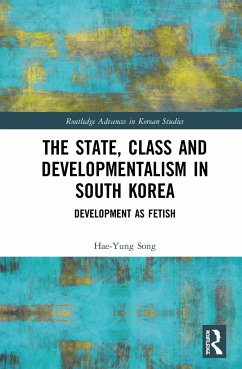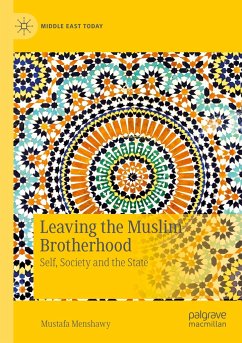
Syria
Revolution From Above
Versandkostenfrei!
Versandfertig in 1-2 Wochen
185,99 €
inkl. MwSt.
Weitere Ausgaben:

PAYBACK Punkte
93 °P sammeln!
This study examines the development of hte Syrian state as it has emerged inder thirty-five years of military-Ba'thist rule and, particularly, under president Hafiz al-Asad. It analyzes the way in which the fragility of the post-independence state, unable to contain rising nationalist struggle and class conflict, opened the way to the Ba'th's "revolution from above" transformed Syria's socio-political terrain. the mixed strategy of power concentration under Asad is then examined and the way in which the creation of a presidential monarchy buttressed by trusted kin and clients commanding instruments of repression was combined with the creation of Lenisit-like political organization incorporating a rural constituency. Susequent state-society realtions, including the rise of a new class, Islamic rebellion, the survival of civil society and Asad's resort to political decompression as a substitute for democratization are then surveyed. The author moves on to assess the political economy of economic development, showing how agrarian reform, industrialization and economic liberlization created a more equitable and diverse but fundamentally flawed state-dominated economy.




